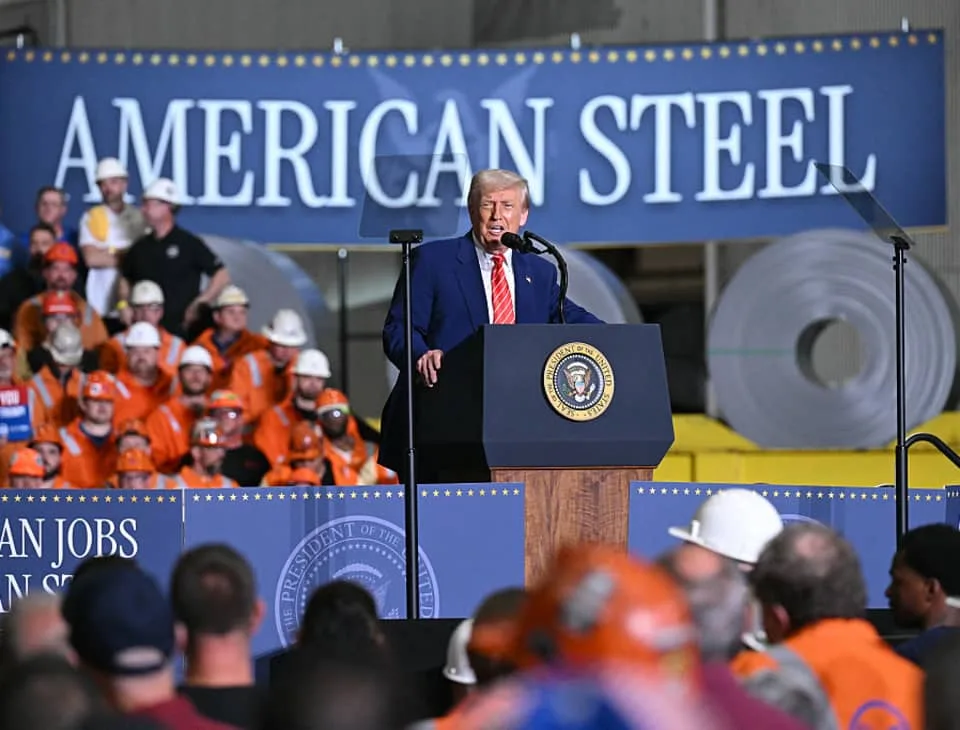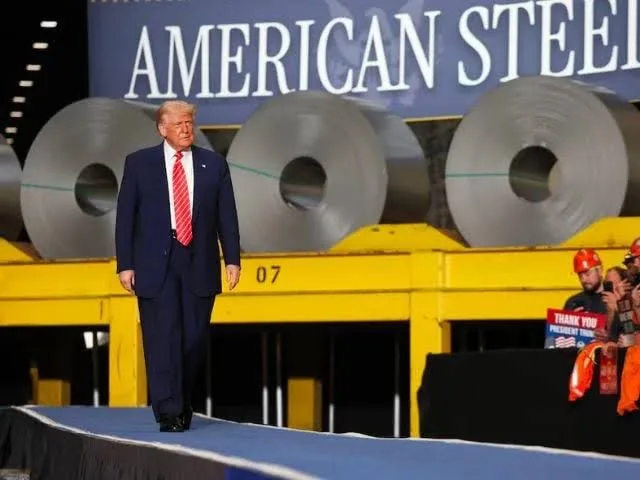In a move expected to escalate trade tensions, President Donald Trump has announced plans to double tariffs on steel and aluminum imports to 50% if re-elected. The proposed tariffs aim to protect domestic steel and aluminum producers but risk sparking retaliatory measures from affected countries.
The plan would significantly increase the current tariffs of 25% on steel and 10% on aluminum, imposed during Trump’s presidency in 2018 under Section 232 of the Trade Expansion Act. National Security Tariffs The proposed tariffs would apply to all steel and aluminum imports, with some potential exemptions for specific countries or products.

Industry Reaction
Domestic steel and aluminum producers have welcomed the move, citing the need for protection from unfair trade practices and cheap imports. However, industries reliant on imported steel and aluminum, such as manufacturers and construction companies, have expressed concerns about potential price increases and supply chain disruptions.
The proposed tariffs could have far-reaching implications for trade relations, potentially:
– *Straining International Relations*: Affected countries may impose retaliatory tariffs on US exports.
– *Increasing Costs for Consumers*: Higher tariffs could lead to increased prices for goods made with steel and aluminum.

– *Disrupting Global Supply
Chains*: The tariffs may impact the global supply of steel and aluminum, affecting industries beyond the US.
The tariffs could affect major steel and aluminum-exporting countries, including:
– *Canada*: A significant steel and aluminum supplier to the US.
– *Mexico*: A key trading partner with substantial steel exports to the US.
– *China*: A major steel producer, although currently subject to higher tariffs.
The proposed tariffs are part of a broader trade policy debate. Supporters argue that tariffs protect domestic industries and jobs, while critics contend that they lead to higher prices and reduced economic growth.
The plan to double steel and aluminum tariffs highlights the ongoing debate about the role of trade policy in the US economy. As the situation develops, one thing is clear: the proposed tariffs will have significant implications for trade relations and the US economy.
